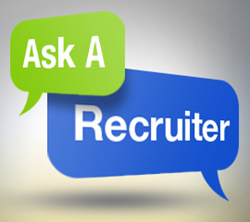 During most interviews, there comes a point when the interviewer turns the tables and asks if you have any questions for them. Though this may be intimidating if you’re unprepared, it can also be a great time to stand out from the competition with some well-crafted questions of your own. Plus, asking questions about the job, the company, and your future employers’ goals helps you learn more about the job.
During most interviews, there comes a point when the interviewer turns the tables and asks if you have any questions for them. Though this may be intimidating if you’re unprepared, it can also be a great time to stand out from the competition with some well-crafted questions of your own. Plus, asking questions about the job, the company, and your future employers’ goals helps you learn more about the job.
The Right Questions
The next time you’re faced with this question during an interview, don’t panic. While some questions will emerge from the conversation you have with your interviewer, there are some back-up questions to have ready just in case. To help you have an even more successful interview, consider the following questions:
- How do you evaluate a person’s performance in this job? What are the important milestones that show they’re successful?
- After this person starts work, what tasks would you expect them to accomplish?
- How much travel is expected in this position?
- Can you tell me a bit about the make-up of the team? How does this position fit into the rest of the department?
- What are your goals for 2015 as a department/team/company?
- What does a typical day here look like? What are the hours, and what are the norms when it comes to working overtime or answering email after hours?
- What do you think are the major events or trends that have shaped your company’s plans this year?
- What do you enjoy most about working here?
- What is your career story? How did you get this current role?
- Does this company have a strong social media presence? What are the norms for using social media here?
- What does a typical career path look like for the person in this role?
- How has this position evolved since it was created? Is it a new position, or a vacancy?
- How do people within the company communicate? Are there regular staff meetings, or is email the main form of communication?
The Wrong Questions
While these are great questions to keep the conversation going during a job interview, there are some questions you should avoid.
- Don’t ask your interviewer what the company does. This shows that you didn’t research the company before you arrived and may suggest a lack of interest in the position.
- You should also avoid asking about time off for vacations, as discussing previous commitments before being offered a position is generally frowned upon.
- Avoid asking about salary during the first interview, and don’t come right out and ask if you got the job. This puts interviewers on the spot and makes you seem impatient. Instead, consider asking about the next steps in the process and following up with a thank-you note.
What are your go-to questions during a job interview? Share with us in the comments section below!
Movin’ On Up is brought to you by Express Employment Professionals.






